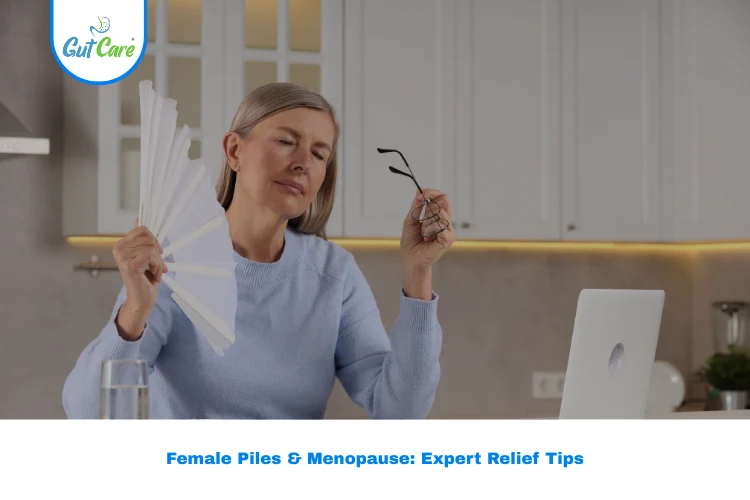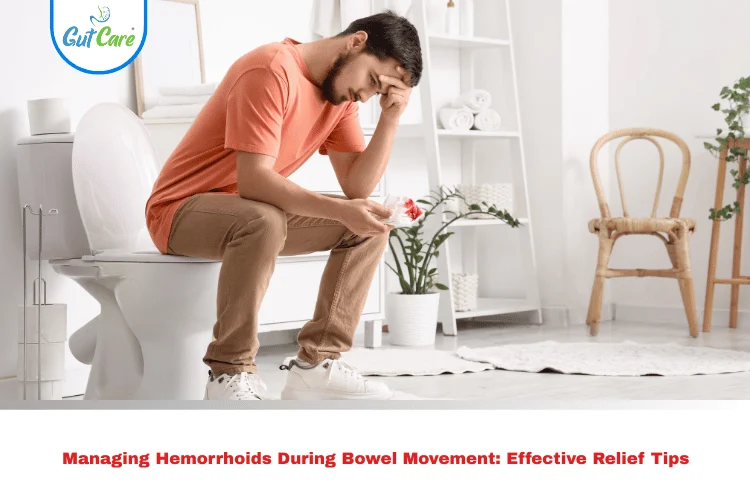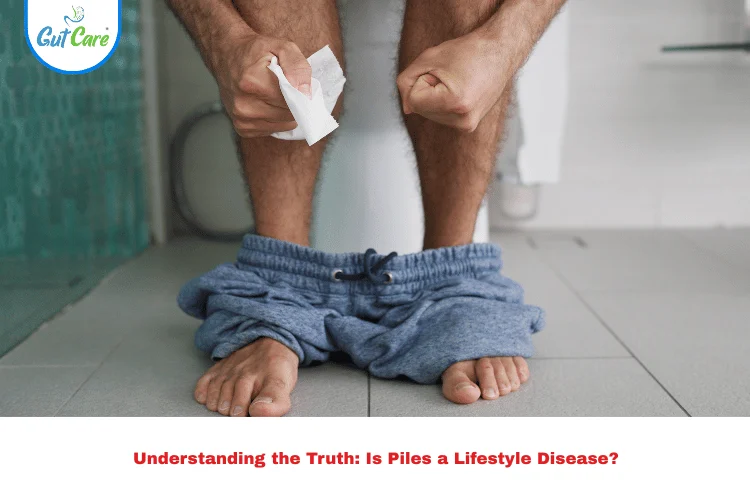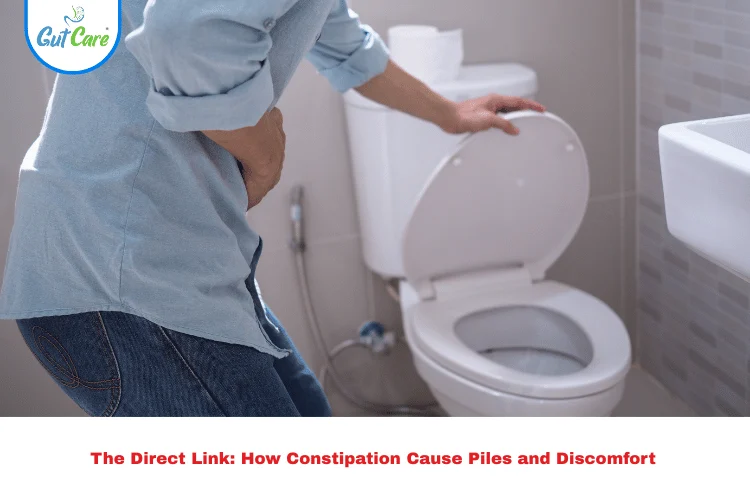Many women silently struggle with female piles, especially during menopause when hormonal shifts affect digestion, bowel habits, and vein health. Hemorrhoids can become more frequent, painful, and harder to manage. At Gutcare Clinics in Bangalore, we see this often—women seeking help when home remedies no longer provide relief.
This guide explains why piles in women are common during menopause, how to manage symptoms, and when it’s time to consult a piles specialist doctor such as a colorectal surgeon or a proctologist.
Understanding Female Piles
Piles (hemorrhoids) are swollen blood vessels in the rectum or anus. They can be internal or external and cause pain, itching, bleeding, and discomfort.
For women, factors like pregnancy, hormonal changes, constipation, and menopause can increase the risk. Menopause, in particular, reduces estrogen levels, leading to weaker blood vessels and slower digestion.
Why Menopause Makes Hemorrhoids Worse
- Hormonal changes: Decline in estrogen weakens pelvic floor and anal tissues.
- Slower metabolism: Increases risk of constipation.
- Weight gain: Adds pressure on rectal veins.
- Reduced activity: Less exercise during menopause worsens bowel movement regularity.
Symptoms of Female Piles
Common signs women should watch for:
- Rectal bleeding during bowel movements
- Pain or burning sensation near the anus
- Itching and irritation
- Swelling or lumps around the anus
- Difficulty sitting for long periods
If symptoms persist, it’s time to see the best doctor for piles instead of relying only on over-the-counter creams.
Natural Remedies and Lifestyle Tips
1. Fiber-Rich Diet
Eat whole grains, fruits, vegetables, and legumes. Fiber softens stool and reduces straining.
2. Hydration
Drink 8–10 glasses of water daily. Staying hydrated prevents constipation.
3. Regular Exercise
Walking, yoga, and pelvic floor exercises improve circulation and digestion.
4. Sitz Baths
Warm water soaks can ease pain and swelling.
5. Avoid Straining
Don’t sit too long on the toilet or force bowel movements.
These steps may control mild cases, but if piles cause repeated bleeding or severe pain, consult a piles doctor in Bangalore.
Medical Treatments for Female Piles
When lifestyle changes aren’t enough, medical intervention is necessary.
- Medication: Creams, ointments, and suppositories reduce inflammation.
- Minimally invasive procedures: Rubber band ligation, laser surgery, or sclerotherapy.
- Surgical treatment: For advanced piles, a colorectal surgeon may perform hemorrhoidectomy.
At Gutcare Clinics, women get access to modern and less painful treatments performed by experienced specialists.
Why See a Piles Specialist Doctor?
Many women delay treatment out of embarrassment. However, consulting an expert like Dr. Yuvrajsingh Gehlot, an experienced proctologist, ensures accurate diagnosis and safe care.
A piles specialist doctor can:
- Rule out serious conditions like colorectal cancer.
- Offer advanced treatments beyond home remedies.
- Provide personalized care for women during menopause.
If you’re looking for the best doctor for piles in Bangalore, Gutcare Clinics offers comprehensive evaluation and treatment tailored for women.
When to Seek Immediate Help
See a piles doctor in Bangalore right away if you notice:
- Heavy rectal bleeding
- Severe anal pain
- Persistent swelling or lumps
- Inability to pass stool comfortably
Ignoring symptoms can make treatment harder and more painful later.
Summary – Stay Comfortable During Menopause
Female piles during menopause are common but manageable. A mix of lifestyle changes, natural remedies, and timely medical consultation can prevent suffering. Don’t ignore persistent symptoms—expert help from a colorectal surgeon or a trusted piles specialist doctor is often the key to lasting relief.
At Gutcare Clinics Bangalore, you’ll find experienced doctors, modern treatments, and compassionate care tailored for women. Take the first step towards comfort and confidence—don’t let piles control your life.
FAQs on Female Piles
1. What causes female piles during menopause?
Hormonal changes, constipation, and weakened pelvic tissues increase the risk of piles in women during menopause.
2. Who is the best doctor for piles in Bangalore?
Gutcare Clinics has some of the most trusted experts, including Dr. Yuvrajsingh Gehlot, a skilled proctologist specializing in women’s health.
3. When should I see a colorectal surgeon for piles?
If home remedies don’t work, or if you experience bleeding, pain, or recurring piles, a colorectal surgeon can provide minimally invasive or surgical treatment.
4. Can a piles specialist doctor help with early symptoms?
Yes. A piles specialist doctor can recommend medications, dietary changes, and preventive measures before the condition worsens.
5. Why choose Gutcare Clinics for female piles treatment?
At Gutcare Clinics Bangalore, women receive personalized treatment from the best doctors for piles, ensuring comfort and long-term relief.




